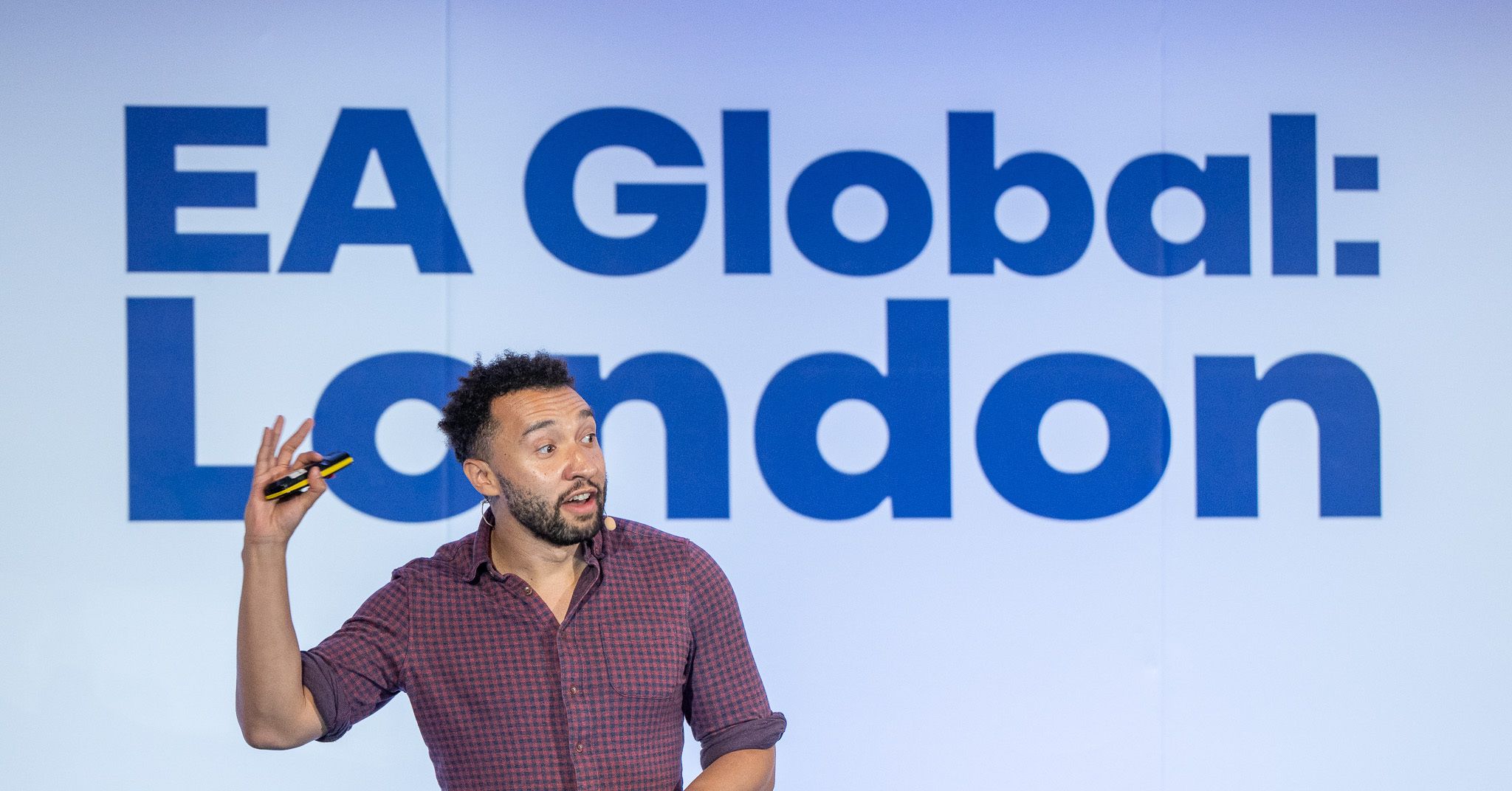Hi folks,
The ask: does anyone know of a repository/list of EA speakers I could reach out to for a paid speaking opportunity? If not, please read further and suggest folks you think would be a good fit!
Note:
- If the speaker is very high profile and is likely to draw an audience of 200-250 people from across research institutes and universities, we can pay an honorarium of 10,000 US dollars (I'm thinking probably like...Cass Sunstein or Peter Singer level of fame?)
- If the speaker is lower profile and would likely generate an audience of ~50 people from within our organization, we can pay an honorarium of 1,500 US dollars.
I'm envisioning a talk that uses data/visualizations and maybe a dash of humor to support a claim along the lines of "it's worth trying to figure out how your work can be as impactful as possible." I don't think the organization would respond well to anyone suggesting that folks should leave our organization to do something different (like how 80,000 Hours often offers broad career advice). But I think they could be receptive to the idea that the research they are doing could be made even more impactful if they shifted into an EA mindset. (Especially if the speaker offered some tools/starting places for how to go about prioritizing work/research opportunities based on expected impact.) Another framework for a talk could be like "I did this really impactful research. Here's how I know it was really impactful. I can tell you a bit about the research. And then I'll also give you insight into what I considered beforehand that made it likely for it to be impactful."
A bit more context: I'm working on integrating a number of EA ideas into a large research organization. (You can learn more here if you're interested.) The company, being a research organization, loves data and science and logic, and their mission is to "improve the human condition by turning knowledge into practice."
One component of my project includes teaching others in my organization about Effective Altruism (i.e., "community building"). And given the culture of my organization, I think it's likely many people in my organization have the data-driven minds and value set that are common in the EA community. SO, I think these people are very likely to find Effective Altruism useful, interesting, worth contributing to, etc.
I recently learned that I could get funding to bring a speaker to my organization, but I don't have a top-of-mind list of speaker ideas. It would take me a while of going down EA YouTube spirals to narrow down potential candidates, and then I couldn't be sure they'd even be the type of people who would be interested in doing a talk in response to an email from a random person with no connections. So, I figured crowd sourcing ideas from you all could be helpful.
Of course, please reach out if you have any questions or clarifications! I'm not sure what kind of information is helpful to folks when thinking about planning speaking events, and I don't know if it's okay to have such specific topic requests for the talk.



Thanks for posting this question! You can see an incomplete list of speakers from past EA Global conferences here: https://www.eaglobal.org/speakers/
And you can see lots of videos here: https://www.youtube.com/c/EffectiveAltruismVideos/featured
(Although you might already be aware of both of these resources.)
Thank you so much, Lizka! I will take a look at these!